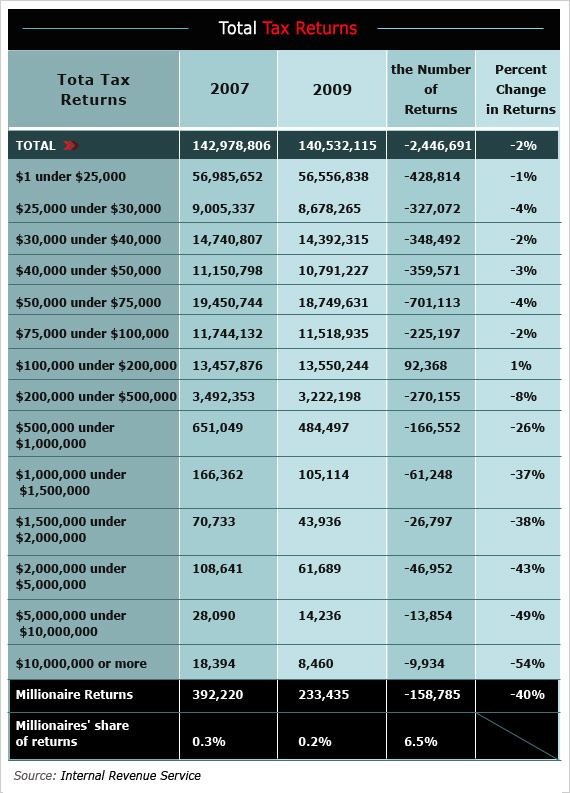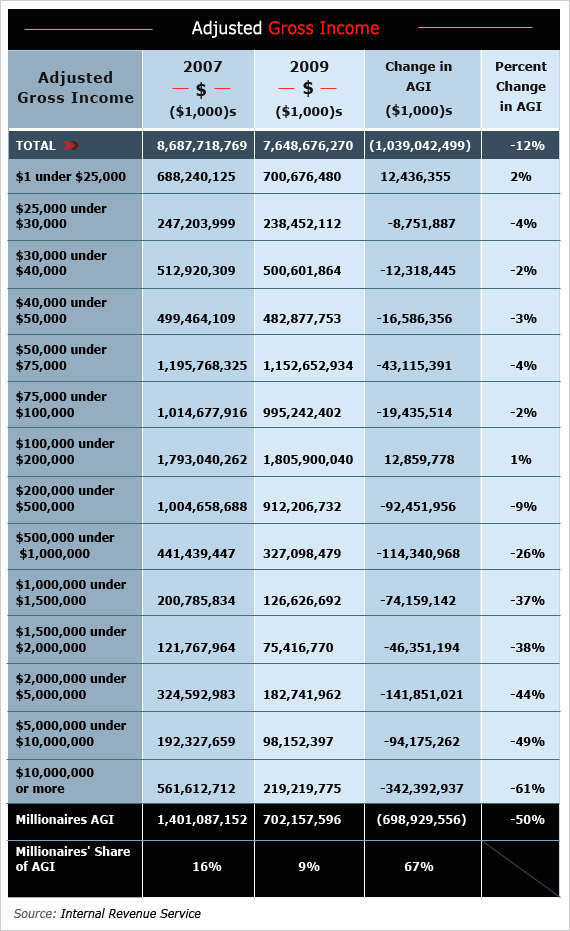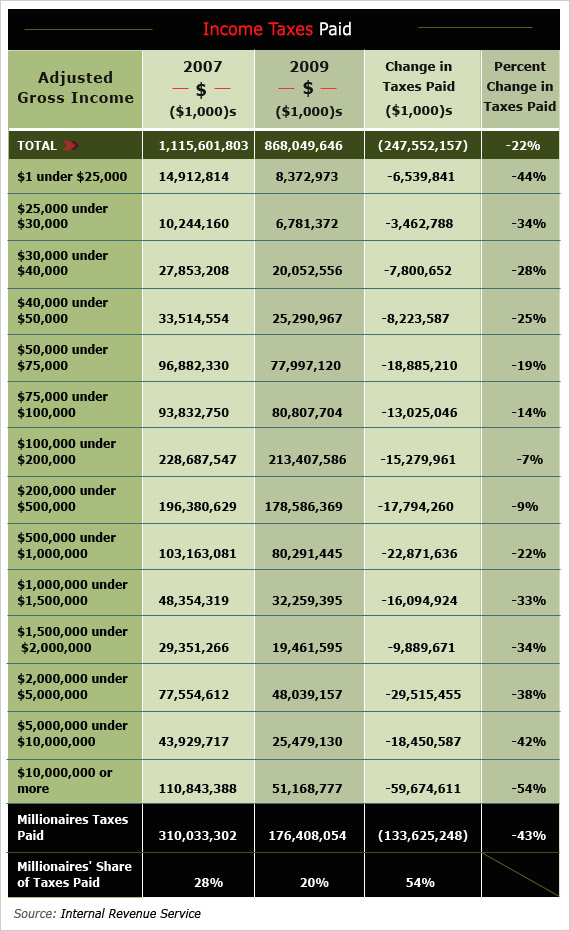President Obama's proposed "Buffett Rule" reminded me of a blog I wrote a few months ago on the impact of the recession on millionaire incomes and the taxes they pay. It may sound circular, but if you are going to tax millionaires, you need millionaires to tax. But recent IRS data for 2009 indicates that the recession did more to reduce the number of millionaires than any surtax.
Comparing the 2009 data to the pre-recession data for 2007 shows that not only did the number of millionaires fall by 40 percent, but the overall income of millionaires fell by 50 percent. The result for the U.S. Treasury was that 54 percent of the total drop in tax revenues during this period was due to the falling tax collections from millionaires.
Table 1 shows the total number of tax returns by income group. In 2007, there were 392,220 tax returns reporting $1 million or more in adjusted gross income (AGI). In 2009, by contrast, there were 233,435 millionaire returns, a drop of nearly 159,000, or 40 percent.
Of the total number of tax returns filed each year, millionaires' share of returns declined from 0.3 percent to 0.2 percent.

Table 2 compares the amount of AGI reported by each income group in 2007 to 2009. Overall, American's incomes dropped 12 percent from 2007 to 2009. However, millionaires' income dropped 50 percent during this period to $702 billion from $1.4 trillion. While the total amount of AGI for all taxpayers dropped by roughly $1.04 trillion, the reduction in millionaires' income comprised 67 percent of that total loss in AGI.
The AGI of taxpayers earning over $10 million fell 61 percent, the biggest decline in AGI of any group. Their incomes dropped $342 billion in two years, from $561 billion in 2007 to $219 billion in 2009. Their lost income comprised roughly 33 percent of the overall fall in AGI over those two years.

Table 3 shows the amount of income taxes paid by each income group for 2007 and 2009. Overall, income tax revenues declined by 22 percent in those two years, or $247 billion. However, collections from millionaires dropped 43 percent, or $133 billion. Collections from those earning over $10 million collapsed even more, falling by 54 percent or roughly $60 billion.
In 2007, millionaires contributed 28 percent of the roughly $1.11 trillion in tax revenues collected that year. By contrast, in 2009, their share of income tax burden fell to 20 percent.
Overall, the lost revenues from millionaires comprised 54 percent of the total drop in tax collections between 2007 and 2009.

The lesson from this IRS data is that we don't need higher tax rates on millionaires to collect more tax revenues from them. We need economic growth to create more millionaires. Once we have more millionaires, the tax collections will take care of themselves.
This piece originally appeared on the Tax Foundation's "Tax Policy Blog."




